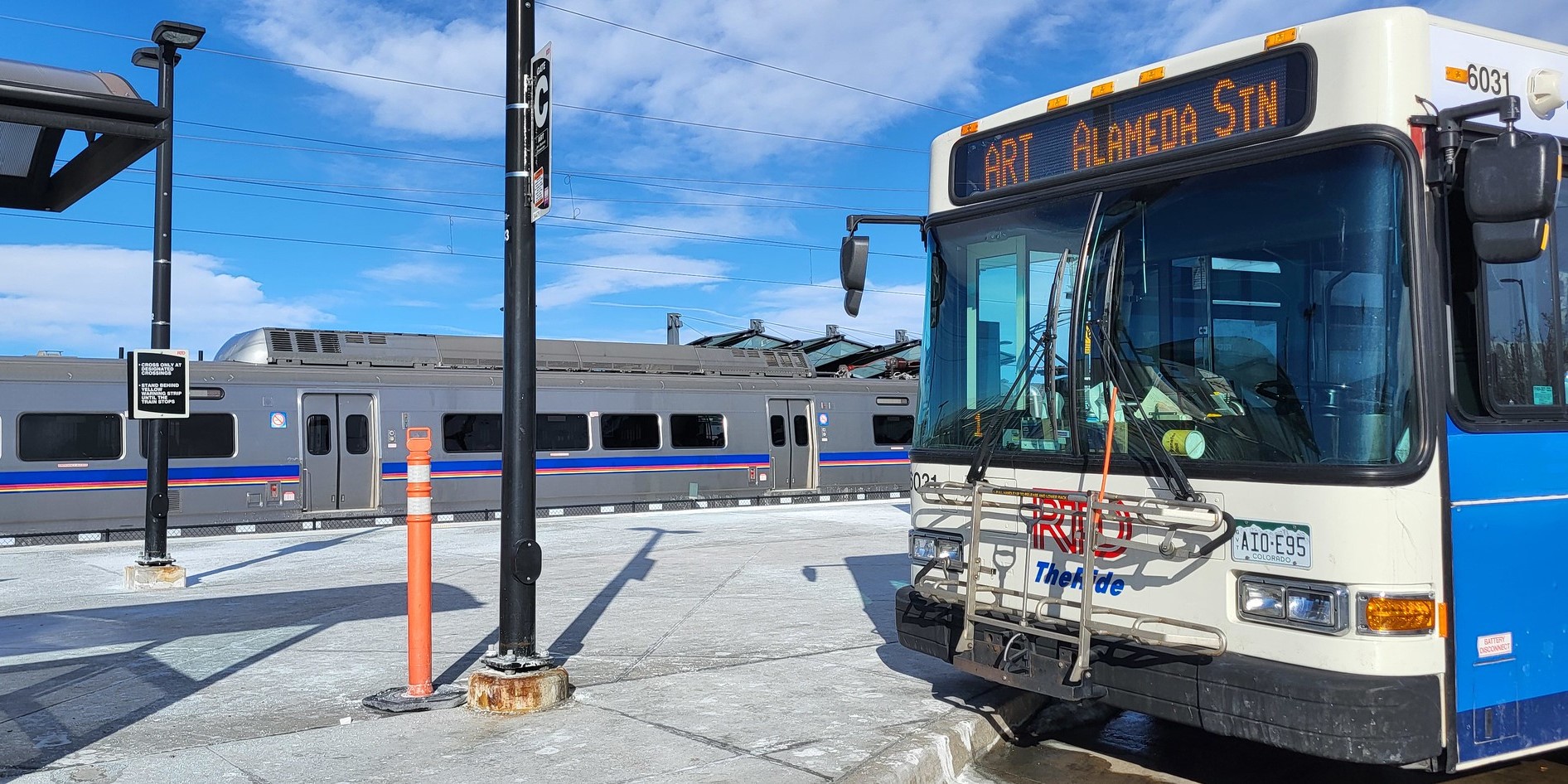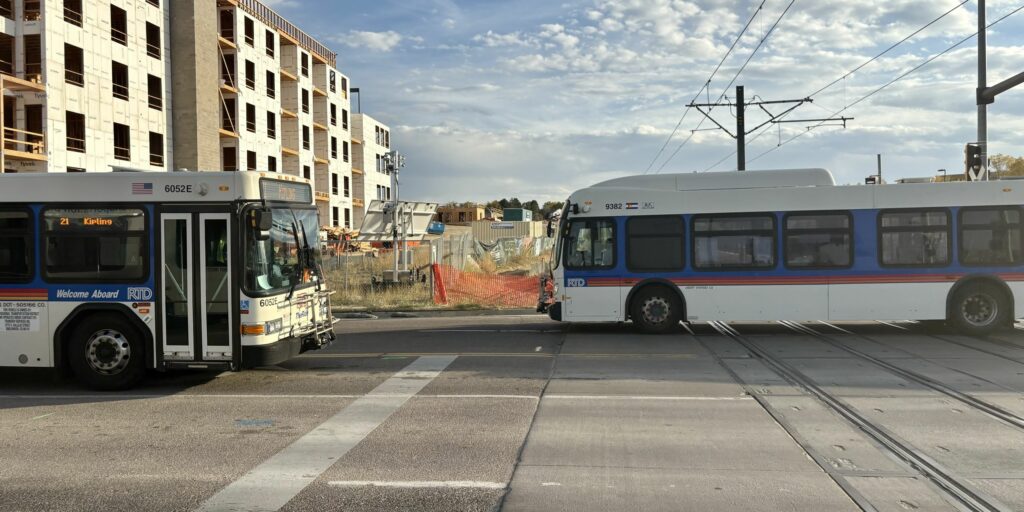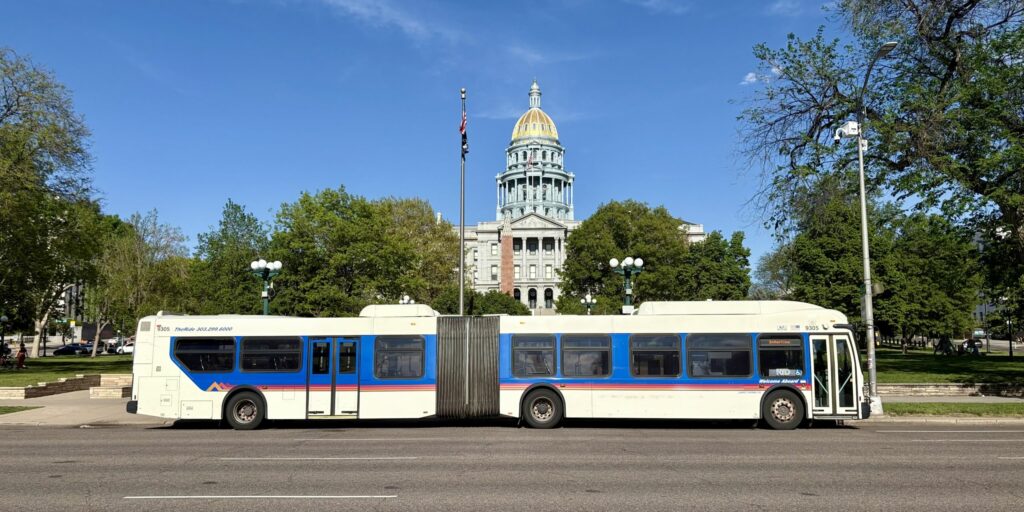GDT > RTD Info > 2024 Organizational Assessment

In early 2024, RTD embarked on a months-long, comprehensive organizational assessment to identify areas of strength and pinpoint opportunities for improvement. The process was led by Segal, a team of consultants with subject-matter expertise in organizational design and culture.
Organization and Staffing
We start with a shot at the board…
“There are perceptions that Board members are using RTD resources to pursue personal agendas rather than advance vital public needs”.
RTD Organizational Assessment Final Report, June 2024
The report starts off by targeting the Board for getting involved too much in management affairs rather than focusing governance and policy making. Our selected quote above levels an ultimately serious accusation at Board members, while providing no back up for the claim as it’s only “perceptions” by unnamed individuals or teams.
And then move on to the senior leadership team…
“Several members of the senior leadership team are highly regarded, but there are concerns about the integrity of some members”.
RTD Organizational Assessment Final Report, June 2024
There are significant claims made regarding the integrity of some senior leadership staff, and the senior leadership team is described as “disjointed”, “focused on firefighting” working under a GM & CEO who doesn’t have confidence in all of its members. It was reported to the Consultant that senior leadership team members “stay in their own lane” and do not engage in shared strategy development or problem solving.
The organizational structure hampers the agency’s effectiveness…
“Much of RTD’s organizational structure appears to have been created in response to personality conflicts or career aspirations rather than organizational needs”.
RTD Organizational Assessment Final Report, June 2024
The report says RTD’s organizational structure, staffing approach, and leadership dynamics are not supporting the agency to function in an optimal manner. It details issues such as overlaps in departmental functions, the chief technology officer position being vacant, Contracting and Procurement being understaffed resulting in purchases being delayed, job titles that create confusion about roles and responsibilities, a heavy reliance on external consultants and supervisors who are not empowered to make decisions. It notes that there is general recognition that the agency’s structure should be realigned, but there is no consensus about how this should be done.
There is also a highly interesting page that wonders why some of the various organizational units and activities are aligned the way they are. Some of the questions asked are “Why are there three facilities maintenance groups?”, “Why is the sign shop in Bus Operations?” and, most bizarrely of all, “Why is the print shop under the Chief People Officer?”
Employee Experience
Certain agency practices discourage high performance and employee commitment…
“Being part of an organization that is not perceived to be committed to excellence is a source of
dissatisfaction for many RTD employees.”
RTD Organizational Assessment Final Report, June 2024
The report devotes a lot of content to its findings about the employee experience. Major issues identified include concerns about how poor performance is treated, hiring co-workers that lack suitable skills for their roles and safety & security not being an organizational priority. In addition, employees who maintain structures, facilities and vehicles were said to be most likely to be frustrated with their jobs because they lack critical parts, equipment, or authorization to contract for services.
Collaboration and Coordination
RTD’s hierarchical organizational culture impedes collaboration and coordination…
“Managers and senior leaders often refuse to honor even basic requests made by those ‘below them‘ on the organizational chart and will respond only when a peer or higher is engaged.”
RTD Organizational Assessment Final Report, June 2024
The report talks about ‘organizational silos’ being common which result in duplication of effort because teams don’t know what other teams are doing, challenges addressing issues that require cross-functional expertise, employee insights not been adequately leveraged and strict chain-of-command protocols making it difficult to achieve results.
Communication
Employees, supervisors, and managers need more information to be effective in their roles…
“Changes in policies and procedures are not effectively documented or communicated and employees are often disciplined for failing to comply with new expectations that they did not know about.”
RTD Organizational Assessment Final Report, June 2024
As regards communication, the report cites several challenges that are common to large organizations including a dispersed workforce who require different communication mediums to be reached e.g. emails, flyers, staff briefings. A lack of internal directories makes it difficult for employees to contact co-workers in other departments or know who does what. Finally “The Hub”, RTD’s internal information portal, is described as difficult to navigate.
Future Direction
Employees are worried about RTD’s long term viability…
“Employees are worried about and embarrassed by public trust issues that have emerged because of variable service levels, personal security and mechanical safety concerns, and the inability to deliver on transit expansion plans.”
RTD Organizational Assessment Final Report, June 2024
The report backs up what we know the front line bus and rail operators are thinking – the current service, particularly on light rail, is simply not good enough. It’s tough on morale to know this every time you come to work and be repeatedly reminded of it by angry and frustrated riders.
The RTD police are criticized…
“The growth of the police force is a significant source of concern among many at RTD.”
RTD Organizational Assessment Final Report, June 2024
One of RTD’s flagship policies, the expansion of the agency’s police department in order to provide a “welcoming transit environment” is heavily criticized in the report with regular RTD employee perceptions including that the police are not effectively addressing bus and rail operator concerns, are ”sucking resources” out of the agency, have taken over buildings and parking spaces and have not made authentic attempts to get to know others within RTD.
Employees are questioning leadership’s declaration that RTD is now in “maintenance mode”…
“After years of growth and expansion, RTD is now in a maintenance mode, a status that feels uninspiring and raises issues about staffing levels and organizational structures.”
RTD Organizational Assessment Final Report, June 2024
We’ve heard this theme a number of times in the past year that RTD has moved into a different phase of its existence and now must become solely an operations and maintenance organization. With the exception of some unfinished FasTracks schemes, all capital projects (i.e. those that would build the transit system the Denver Metro area needs) are not going to come from RTD. To GDT’s disappointment, this has even made it into the latest Board Operating Guidelines.
Now it’s one thing to say that, while RTD was building rail lines like crazy in the 2010s, maintenance of the existing system was somewhat neglected and that should currently be a focus. But to say the agency has now moved beyond carrying out capital projects that add transit is a policy that’s unlikely to win support from the State or the cities and counties RTD serves.
Regarding the GM & CEO…
“The GM/CEO is viewed as inspiring, dynamic, strategic, transparent, caring and courageous. She is widely described as having very high standards.”
RTD Organizational Assessment Final Report, June 2024
“GM/CEO is viewed as key to RTD’s long term success and rumors of her likely departure are a significant source of consternation.”
RTD Organizational Assessment Final Report, June 2024
Throughout the report, the GM & CEO is repeatedly described in a positive manner. This is in stark contrast to depictions of other organizational aspects, entities, and persons as described in the report. While we obviously don’t know everything that goes on at RTD, it strikes us as odd that in the middle of a severe decline in trust and ridership there is relatively little meaningful criticism of the GM & CEO’s practices throughout this report, while there is plenty leveled at others. Even if employees and those interviewed ultimately perceive her tenure as a positive one, in order to fix key issues at RTD we need to understand the entirety of the problem – including issues with the GM & CEO’s actions and performance, if and when applicable.
Key Recommendations
To address the findings identified, the report offers the following recommendations:
- Redesign RTD’s organizational structure and operating approach to better align roles and responsibilities and encourage collaboration.
- Strive to make RTD one of the region’s most desirable employers.
- Adopt a more participatory and systems-oriented approach to address organizational challenges and encourage continuous improvement.
- Use a more strategic and targeted approach to information sharing.
- Articulate a clear, compelling, and inspiring vision for RTD’s future and ensure that all employees understand how they can contribute to the agency’s success.
Conclusions
The 2024 RTD Organization Assessment report pulls no punches, telling us that RTD is currently operating in a highly dysfunctional manner and providing multiple recommendations as to how it can be improved. Ultimately, change must come from the top – the GM & CEO, senior staff, and key stakeholders – if RTD is to restore public trust and confidence.


